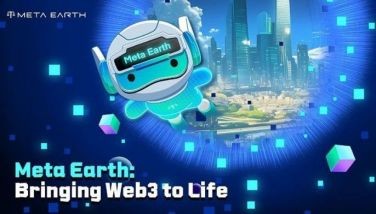Why we failed

A reader has commented that with all the years behind me, I can explain how and why we failed.
It is very painful for me to do this, having witnessed so many of the obvious mistakes that our leaders and, of course, how we, as a people, failed. We must remember that in the 1950s and 1960s, although World War II laid waste to Manila and much of the countryside, we were the richest, most modern country in Asia, next to Japan.
South Korea and its capital, Seoul, were far more devastated than Manila by the Korean War in the early 1950s. In one generation, however, it has not only recovered, but it has also gained ascendancy; without a shipping industry to begin with, South Korea is now the builder of the biggest ships in the world, a leading car manufacturer and the home of Samsung, one of the world’s best electronics giants.
The South Korean economic miracle is instructive. Development starts with capital accumulation, whether it is by the state or the oligarchy. We had lots of that capital, but much of it went out, hoarded in Switzerland or invested in China, Spain and other countries. If it was not sent abroad, it was used to fund nonproductive enterprises, the golf courses and swanky resorts, the condos, all of which are not producing goods.
This can be explained by the people who held all this financial wealth. Their attitudes are not those of creative nation builders but those of exploiters and landlords, which they inherited from the colonizers for whom they worked either as partners or as agents. They are of course indolent, for their attitudes are those of landlords waiting only for the rent or their share of the harvest. Landlordism is one of the basic cultural obstructions to development. How to change landlords into producers is the primary challenge to the Filipino elite.
The Philippines has, no doubt, many natural resources, most of which are not renewable. Our forests, for instance, are now a mere 20 percent of what they were. In the 1950s, we denuded them without reforesting. We exported logs instead of lumber or finished wood products. Our craftsmen and designers produced world class furniture for export. Now, they have no hardwood to work with; we import it.
We have lagged behind in technical expertise but have produced a surplus of lawyers and humanists without jobs awaiting them when they graduate. We have forced our graduates and unemployed to seek employment abroad, leaving thousands of wretched wrecked families. This started during the Marcos regime, which also marked the beginning of our economic decline because of wrong economic policies that supported the importation of goods that could have easily been manufactured here.
The basic foundation of industrialization is the establishment of the steel industry, but that steel mill industry was dismantled and sold. Smuggling was rampant, and it destroyed the textile industry and in agriculture, the death of ramie and cotton and abaca plantations.
There never was enough power in the country which is why power generation is most expensive but profitable. Marcos planned a nuclear power plant which could have reduced power costs, but that nuclear plant was abandoned.
The Korean War in the early 1950s devastated Korea, too. I saw that nation on its knees. After General Park Chung Hee’s successful coup in the 1960s, he summoned all the big business leaders and told them to modernize South Korea, and he would assist them. But if that country was not modernized after 20 years, he would cut off their heads. The people believed him. At one time when the economy faltered, the women bequeathed their jewelry and their gold to the government. Korean overseas workers enlarged the domestic capital. In the 1960s, all of Korea’s mountains were bare; now they are reforested.
It has been claimed that the progress in South Korea was also primarily powered by the Confucian ethic which made the Koreans more amenable to an autocratic government. This point of view is debatable. But one thing is for sure: the Koreans work harder than most, and they produced cheaper and better-quality products that could compete in the world market. South Korean industry is supported by an understanding government for as long as the businessmen are modernizers.
The South Korean movie industry is also instructive, utilizing native and historical themes with scripts written by their best writers. It has captured the world’s imagination and with it, the international market.
It must be remembered that all these economic developments were made even under the threat of war with North Korea. The possibility of the resumption of the Korean War is always imminent in the South Korean mind.
South Korean democracy is thriving, and the justice system is working, making it possible for that system to punish its highest officials who have done their country wrong.
Now, let us look at our leaders, particularly Marcos, when the rot really started. His election was a landslide, his term foisted by this country’s finest technocrats. But towards the end of his second term, the glory had faded; to continue his reign, he had to declare Martial Law which enabled him and his wife to plunder the country with the help of his oligarchs and the monopolies he created.
After him, the so-called colorless reformist leaders, all of whom were hobbled by corruption. Duterte, it is now evident, is not much different, although he has a lot of new infrastructure to show. Like Marcos, he has his own circle of favored oligarchs, and only God knows his real SALN and the pile he made, the tremendous debts he had incurred which future Filipino generations will have to pay.
Is the Filipino case hopeless?
In light of the South Korean experience, pessimists say it is, and they have a lot of empirical evidence to back this conclusion. I disagree; the leaders who led us to perdition are, in the long run, minor incidents in our history. Some of our problems are not their creation but are inherent in an archaic, outmoded political system that needs to be changed immediately. Persistent social engineering can also change barnacled attitudes and customs. Nationalism as inspiration is the crucial ingredient in development. Unfortunately, the wealthy Filipinos and their political collaborators have no love or devotion for our country which they plundered.
I hope it will be possible to do all these things after the elections next year. That is, if we vote wisely.
- Latest
- Trending






















